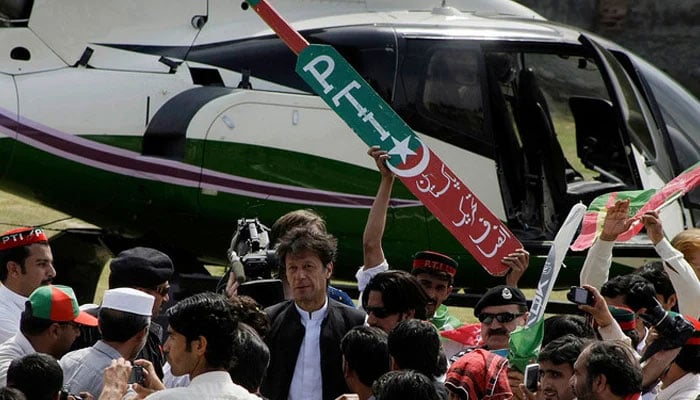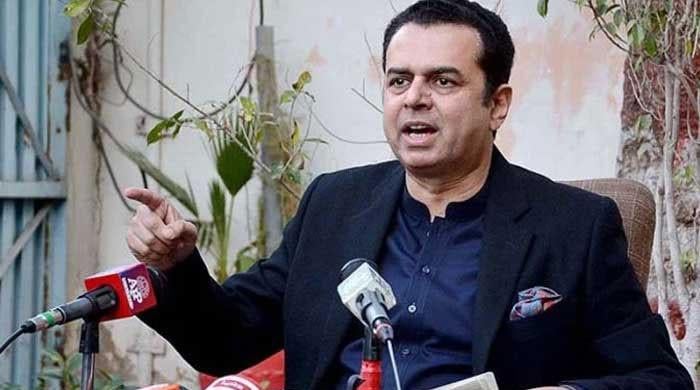Experts weigh in on SC ruling on PTI's intra-party polls
Some experts see ruling as blow to voters' rights while others term it consequence of not offering enough argument during proceedings
January 14, 2024

KARACHI: Legal and electoral experts have differing opinions on the Supreme Court’s Saturday verdict, some seeing it as a blow to the rights of voters while others terming it a consequence of the PTI not offering enough legal argument during the proceedings.
Talking to The News on Saturday night, PILDAT President Ahmed Bilal Mehboob said: “The PTI focussed on political considerations in the case and almost ignored legal and constitutional grounds. Since courts are a legal forum, political arguments didn’t cut much ice.”
According to him, “The SC judgment is obviously a major setback for the party. The real loss is in the form of deprivation of 226 reserved seats including 60 in NA. This robs the party of its chance, if at all there was any, to come to power but parties do fall and rise again.”
Advising the PTI to “get rid of its focus on agitational politics and instead prepare to become an effective opposition in the National Assembly and the Punjab Assembly”, Mehboob added that the party “may even be in a position to form government in Khyber Pakhtunkhwa.”
If that were to happen, Mehboob’s advice to the PTI is that “saner elements in the party should focus on playing as effective a role as possible whether in opposition or in a provincial government by establishing working relations with its adversaries.”
Reacting to Saturday night’s Supreme Court verdict, lawyer and independent politician Jibran Nasir laid out the consequences the PTI now faces after losing the ‘bat’ symbol.
Tweeting that there is now no “option for PTI affiliated candidates except contesting as independents”, Nasir wrote that “every single candidate will have to do an individual campaign with customised advertising as everyone would have a different symbol. This has a direct impact on election expenses, organising, canvassing etc.”
According to Nasir, had the PTI retained its unified symbol, despite not being allowed to campaign, its voters “could have mobilised and organised themselves around a unified symbol which [will] not be possible now further denting the campaign.”
In his post on X, formerly Twitter, Nasir also posted that now “All those PTI affiliated independents who will win will be notified by ECP as independent winners and under the constitution would be free to join any party. Meaning a candidate who might win with [the] support of PTI voters can under duress, influences or for personal gains join PMLN or PPP post-elections. This will allow for ‘Halal’ horse trading.”
Per Nasir, the PTI “loses all prospects of reserve seats. This most regrettably is equivalent to disenfranchising tens of millions of voters across Pakistan.”
Lawyer Reema Omer too had taken to X to post her reaction to the verdict. Calling it an “excessive, punitive response to not conducting intra-party polls as per law”, Omer tweeted that the verdict “is a huge blow to our fundamental rights jurisprudence regarding political parties [and] political participation.”
For high court advocate and former faculty at LUMS Hassan Abdullah Niazi, Saturday’s verdict was a “A terrible precedent that directly contradicts the Supreme Court’s own settled jurisprudence in the Benazir Bhutto case on fundamental rights. Also completely ignores the reality of how important election symbols are in a country with low literacy. It is not just the rights of a political party that were at stake but the rights of millions of voters who have now been effectively stripped of exercising their choice in favour of a political party.”
Tweeting about the goings-on in Pakistan, South Asia Institute Director at The Wilson Center Michael Kugelman said: “PTI leaders jailed. PTI electoral candidates’ nomination papers denied. PTI online rallies/fundraisers blocked. Top PTI rival’s legal woes melt away. SC justices perceived as siding [with] PTI step down. PTI denied use of election symbol. This is brazen, not subtle, pre-polls rigging.”
Originally published in The News









